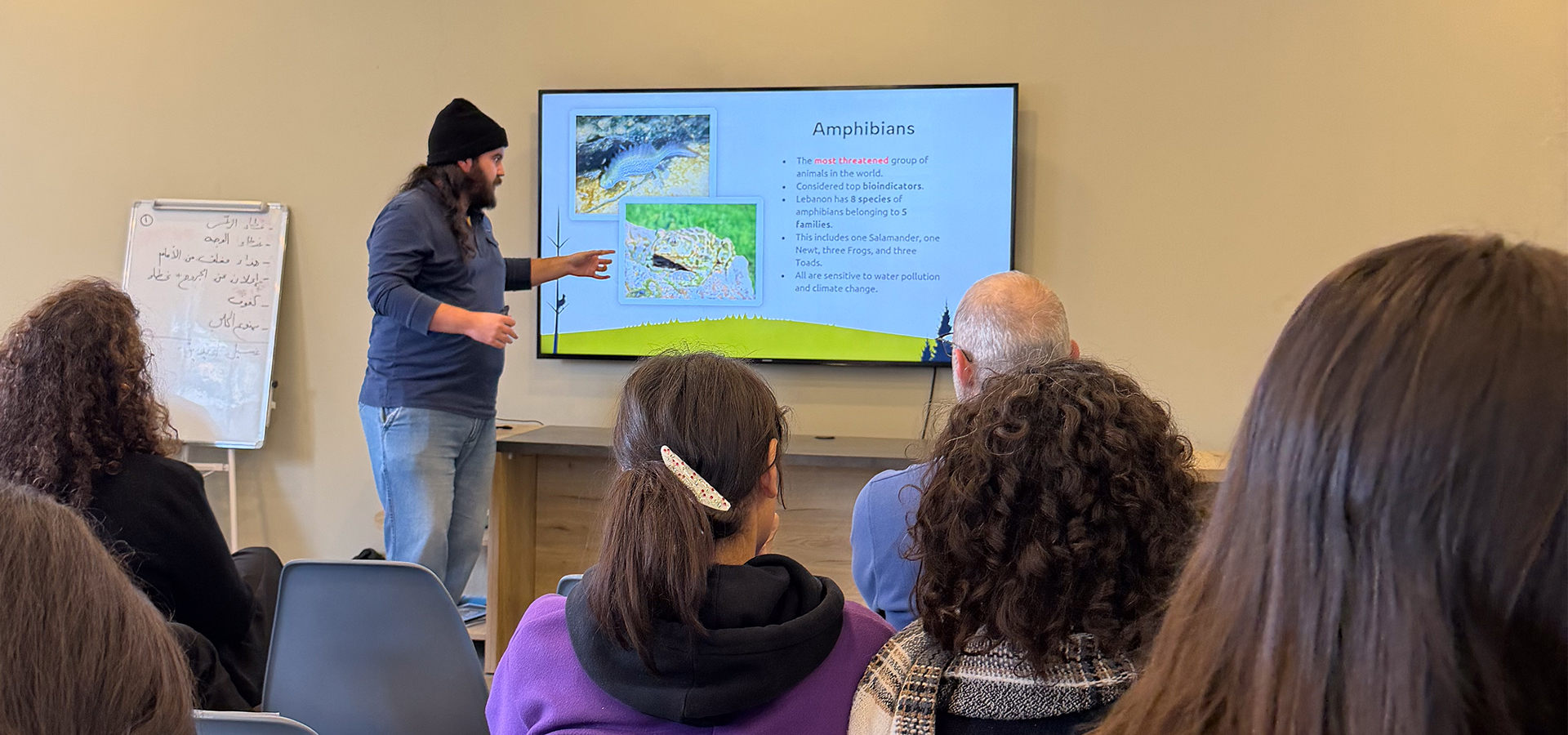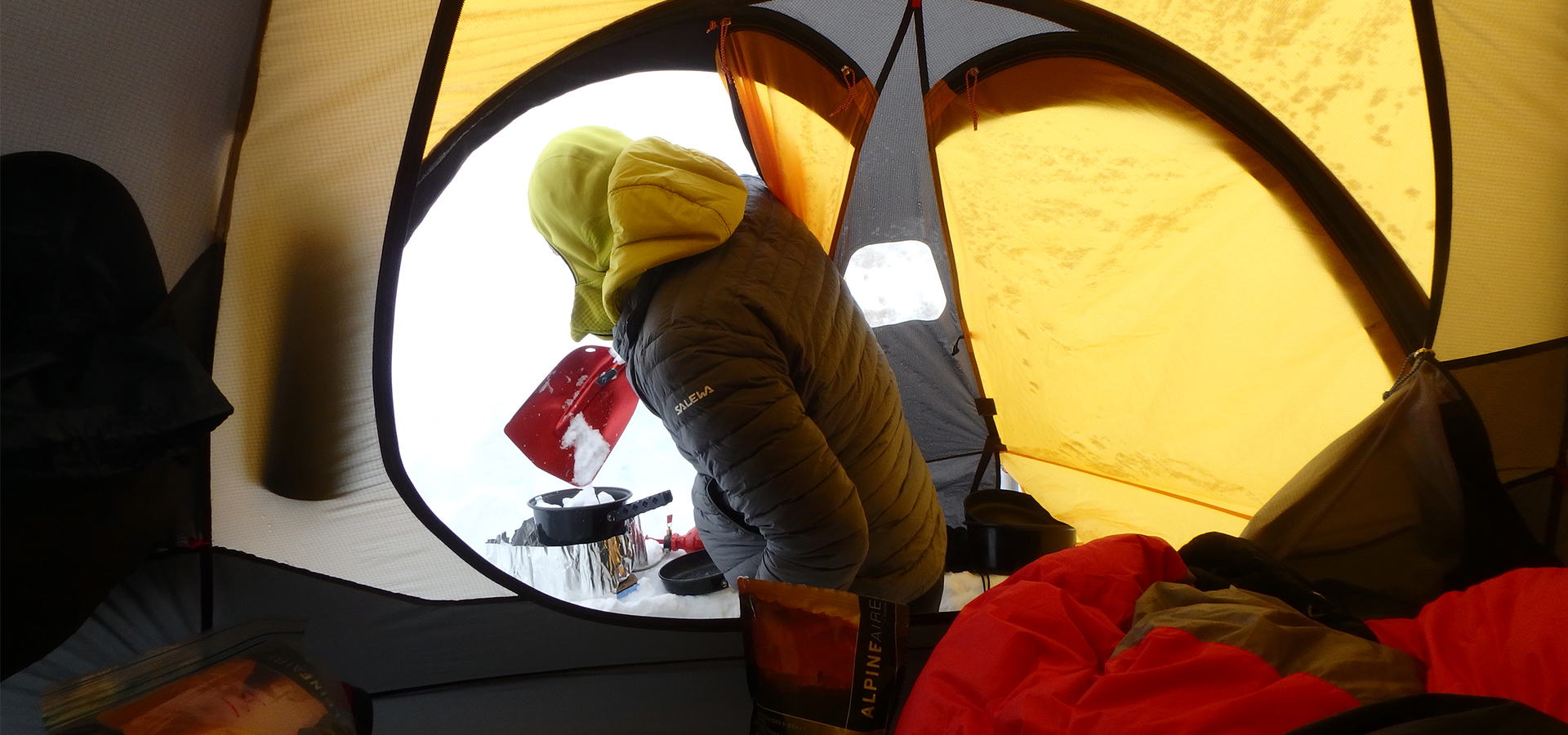
A Better diet for a better climb – Cynthia Habre
- March 26, 2020
- 0
Every year, hundreds of people attempt to climb Mount Everest.
Mountain Climbing has a high requirement for energy. And in common with any sportive activity, health and performance will both be enhanced by proper nutrition and fluid intake. However, this is often easier said than done when at altitude, and in a remote and challenging environmental setting.
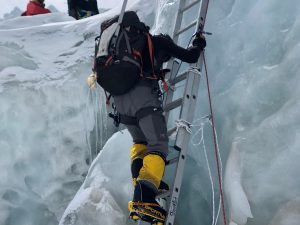
MEETING ENERGY AND NUTRIENT NEEDS
Energy expenditures of human climbing Mount Everest average 2.5 to 3 times higher than at sea level. It is easy to understand why weight loss from reduced energy intake is common outcome of exercise in cold or high-altitude environments.
Athletes performing in these environments should make a conscious effort to eat at frequent intervals.
They should focus on carbohydrate foods because these foods take less oxygen to metabolize than do fat or protein foods, help replace glycogen stores, and have a protein-sparing effect.
In addition, inadequate carbohydrate consumption will eventually result in low blood sugar, which leads to mental confusion and disorientation.
VITAMINS AND MINERALS
The intake of vitamins and minerals should be considered before exposure to either cold or high altitude.
Iron status in particular should be excellent before attempting a high altitude trek because oxygen-carrying capacity is stretched to its limit in the environment.
Taking iron supplements while on the climb is not likely to be of much benefit because it takes months to improve a poor iron status.
Oxidative stress may be higher in hot and cold environments, so consumption of foods that contain antioxidants or periodic consumption of a multivitamin supplement should be considered.
Consuming a variety of antioxidants, such as ASCORBIC ACIDS (found in: guava, sweet red pepper, tomato juice, orange juice, hot green chili pepper, orange, kiwi, broccoli…), BETA-CAROTENE (found in: apricots, asparagus, broccoli, carrots, Chinese cabbage, grapefruit, kale…), SELENIUM (found in: Brazil nuts, fish, tuna, brown rice, egg, bread, ham, beef, turkey, chicken, cottage cheese, sunflower seeds…), and VITAMIN E (found in: sunflower seeds, dry roasted almonds, peanut butter, boiled spinach and broccoli, leafy greens, vegetables oil, fortified breakfast cereals…) is therefore likely a better strategy than focusing on a single antioxidant.
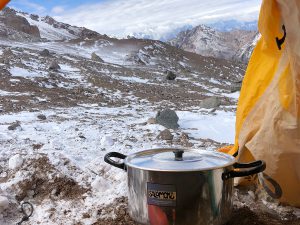
MACRO-NUTRIENTS
it is important that the diet be palatable, satisfying, and easy to prepare and eat to minimize any potential weight loss. Having a variety of energy-dense foods and easily prepared carbohydrates for self- selection at meals or that can be put in pockets for easy access while climbing (especially carbohydrates) can be a useful strategy. Maintain a varied food intake.
It’s useful to take a variety of spices for self-selection to increase palatability when taste perception is reduced at altitude.
CARBOHYDRATE 50-65% of total energy intake
The amount required depends upon the athlete’s total daily energy expenditure, type of sport, sex, and environmental conditions
Carbohydrate source: Rice, pasta, noodles, cereals, potato, crackers, bread, tinned & dried fruits
FAT 20-35% of total energy intake (provides essential fat soluble vitamins; high energy food; an essential elements of cell membrane)
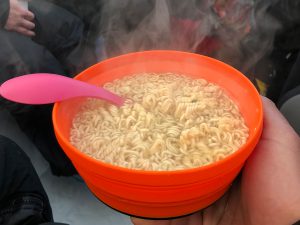
Cooking oil, ghee, tinned foods in oil, peanut butter, nuts, avocado
PROTEIN 15% of total energy intake (Protein is needed to build and repair muscle, tissues)
Fatty fish and sea food (Salmon, swordfish, cold, herring, tuna, sardines) Poultry and eggs, red meat, dairy like cottage cheese, soy based, beans and lentils, nuts and seeds (sunflower seeds, chia seeds)
The diet should be based on whole foods rich in plants, lean proteins, nuts & seeds, and healthy fat sources. Also, they should focus on anti-inflammatory foods.
How often should a climber eat during a normal day?
To optimize metabolism and both physiological and psychological performance (including mood, focus, and efficiency), I recommend eating every three to four hours. Serious athletes sometimes need to eat at least every two hours because of their high metabolism and energy needs. Spreading food intake throughout the day helps ensure that your brain and body will have enough energy to function properly during the day. Eating at regular intervals helps prevent overeating at the end of the day caused by extreme hunger. Eating frequently can actually help regulate body weight better than skipping meals and snacks.
How to stay properly hydrated at altitude and avoid problems concerning dehydration and diarrhea?
We lose electrolytes through sweat. So during prolonged periods of climbing it is prudent that you replenish your mineral and electrolyte stores in order to keep in peak nutritional and performance shape. Maintaining properly balanced electrolyte levels through targeted hydration will ward off cramps, reduce fatigue, boost energy, and aid neurological function Climbers should carry drinking fluids close to the body to keep them from freezing and should even consider keeping fluids with them inside their sleeping bags while sleeping. A unique strategy for keeping fluids from freezing is to add glycerol which may improve fluid retention, add calories to fluids and reduces the freezing point. Glycerol however, also carries risks as a plasma enlarger, so it should only be used with care.
• Do not restrict fluids before, during or after climbing
• Do not rely on thirst as an indicator of fluid losses
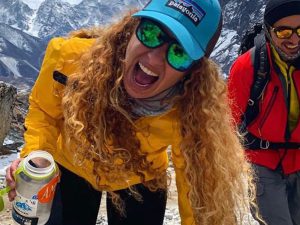
• Drink early and at regular intervals throughout the activity
• Discourage caffeinated beverages because of their diuretic effect
• Having small sips of fluids on regular intervals also eliminate the need to consume a large volume of fluid at one time, which may stimulate the need to urinate
• Take sports drink containing both electrolytes and carbohydrates when the activity is more than 1 hour
THE NIGHT BEFORE THE CLIMB:
The night before the climb, eat a nutrient-rich, Carbs-heavy dinner consisting of whole grains, beans, and fruits to store glycogen—your fuel source for climbing. For example, whole wheat pasta with red sauce and veggies or chicken and avocado provide an ideal blend of protein, carbs, and healthy fats OR chicken with sweet potato. Make sure at least 60 percent of your meal is derived from carbs.
MORNING:
Eat easy-to-digest carbs, like oatmeal, fruit, pancakes, or yogurt with granola, smoothie, bagel with jam or with low fat cream cheese, scrambled egg with white toast
How close to your activity you eat depends on you?
Some people can eat a large meal five minutes before climbing, while others can barely tolerate a small yogurt two hours before the climb. This is very individual.
DURING THE CLIMB:
During the climb, plan to eat during every hour of activity, especially carb-rich foods, which get absorbed directly into the bloodstream to help keep muscles moving. Aim for at least 200 calories and about a quarter of a bottle of fluid.
A few quick tips to go by:
• Pack easy-to-eat snacks so they’re accessible. By easy-to-eat (fast-open packaging, tastes you enjoy, and food that you can munch on even while you’re moving)
• Pack what you know you like; this isn’t the best time to try anything new.
• Don’t skimp on the calories. You’ll be burning a ton, so pack enough to replenish those calories burned, plus more.
A few durable snacks to power your climb.
• String cheese, Chocolate bars, Dried fruit, Honey and banana, Crackers, Energy and granola bars, Nuts, like cashews and almonds, Banana, Bagel with jam, Low fiber cereal, Chocolate bars, Energy Gels
What to eat after the climb:T
he most important requirements for recovery are carbohydrates, fluids, and electrolytes. A small amount of protein is also helpful for post-exercise recovery, but the bulk of your post-exercise meal should be made up of carbohydrates. Remember to eat something within one hour after exercise to get a jump on replenishing your glycogen stores. ex: Whole wheat pasta with red sauce and minced meat
• Alcohol consumption in high-altitude environments causes difficulty and is unhealthy, particularly if combined with caffeine. Beverages providing both caffeine and alcohol should be avoided
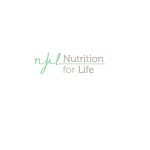
Registered Dietitian
Mob: +961 70 399 855
Mob: +961 70 588 233
www.nflclinic.com
Facebook/Instagram: @nflclinic







